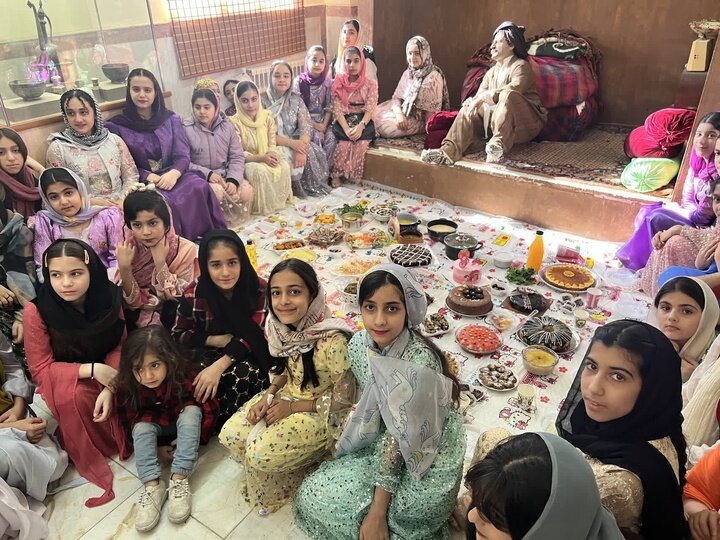Iftar tradition commemorated in Uramanat

TEHRAN – In commemoration of Iftar’s inscription on the UNESCO list, a gathering, participated by 250 multilingual tour leaders, took place in the heart of the Uramanat World Heritage site in Iran’s Kordestan province.
The event, marked by a sense of unity and reverence, highlighted the profound impact of Iftar on Iranian society.
According to organizers, the inscription of Iftar onto the UNESCO list underscores its significance as a cultural practice that transcends borders and generations.
Moreover, the occasion concluded with a symbolic breaking of the fast, as attendees joined together to share a traditional Iftar meal.
Iftar stands out during the lunar month of Ramadan when believers abstain from food and drink during daylight hours and break their fast with the iftar evening meals, which vary from simple plates of bread, dates, cheese, and tea to heavy ones.
For Muslims, Ramadan, also known as “Ramazan-e Karim” (benevolent/merciful Ramadan), is a time for more than ever, practicing humility, patience, simplicity, empathy, and acceptance when things don’t go their way. It’s also a time to make stronger bonds of fellowship.
The fast is observed from dawn (fajr) to sunset (maghrib) and pray more than usual and with even more intensity to get closer to God. Ramadan is traditionally a time of great hospitality and generosity. For Muslims, everything is done ceremoniously and consciously in line with what has been passed down from generation to generation.
After a long day’s observance of fasting from dawn, Muslim families gather at sunset to break their fast over a meal known as Iftar.
Iftar’s inscription on the Representative List of the Intangible Cultural Heritage of Humanity in 2023, testifies that the tradition is more than just food.
Sahrai or “Parshiu”
The Uramanat region, nestled amidst mountains and verdant valleys, is a revered place during the sacred month of Ramadan.
The observance of Ramadan begins with the Sahari ceremony, known as "Parshiu" in the local dialect, which marks the onset of fasting, characterized by the invocations echoing through the minarets of mosques.
As dawn approaches, religious leaders traverse the pathways, gently calling households to partake in the pre-dawn meal, symbolizing unity and devotion.
Iftar or “Barbang”
The Iftar ceremony, colloquially referred to as "Barbang," embodies the culmination of fasting as the sun dips below the horizon.
Iftar in the Uramanat World Heritage Site takes two forms, one of which occurs in mosques, often attended by men. In this form, several families voluntarily bake a local pastry known as "Beji," a skill listed in the national intangible heritage list, along with dates and milk, bringing it to mosques to be distributed among fasting individuals.
In most cases, it's the mosques and community centers that take on the responsibility of hosting the iftar, while families prepare their own meals at home.
Iftar among the people of Uramanat symbolizes unity and support during difficult times.
It’s noteworthy that UNESCO added the Uramanat cultural landscape to its list of world heritage sites in July 2021. The UN body accepted the landscape, which holds hundreds of villages, 106,000 hectares of land, and 303,000 hectares of surrounding properties.
Stretched on the slopes of Sarvabad county, and shared between the provinces of Kordestan and Kermanshah, the rural area embraces dense and step-like rows of houses in a way that the roof of each house forms the yard of the upper one, a feature that adds to its charm and attractiveness. It boasts dense and step-like rows of houses in a way that the roof of each house forms the yard of the upper one, a feature that adds to its charm and attractiveness.
Leave a Comment